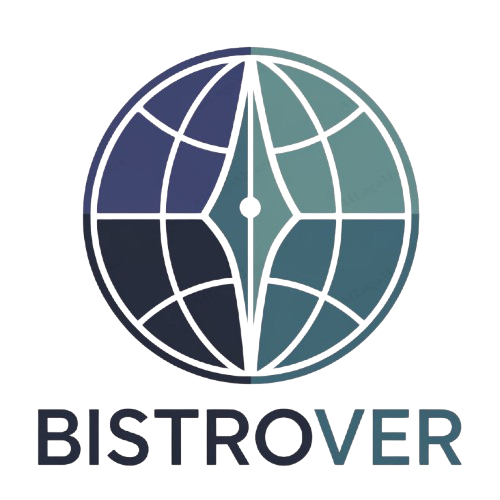Transformative Data Collaboration Tools and Their Impact on Modern Business Strategies
Key Takeaways
- Data collaboration tools are reshaping how businesses operate in the digital age.
- Privacy and security remain pivotal in data-sharing strategies.
- Effective use of data collaboration enhances decision-making and innovation.
Introduction to Data Collaboration Tools
In the ever-changing digital landscape, how companies handle and use data is more critical than ever. Data collaboration tools are revolutionizing how organizations access and extract value from data. Using an audience insights tool, companies can securely and efficiently analyze behavioral patterns that drive market trends and customer preferences. These tools serve as a bridge between disparate data sources, offering comprehensive analytics without the need for manual data integration, which can often lead to errors.
Furthermore, data collaboration fosters an environment of shared knowledge within organizations. Businesses can leverage collective intelligence to drive their strategies forward by enabling seamless communication and data flow between departments. This integration allows for a more coordinated approach to meeting customer needs and achieving business objectives, ultimately increasing competitiveness in a crowded market.
The Role of Privacy and Security
Privacy and security have become non-negotiable in the context of data sharing. As organizations enhance their data collaboration capabilities, they must also rigorously ensure that customer information remains protected. Modern data collaboration tools have advanced security features that conform to global standards, such as the General Data Protection Regulation (GDPR). This ensures that as data is shared and analyzed, it remains secure from breaches and misuse.
Organizations that emphasize privacy meet regulatory requirements and cultivate trust with their stakeholders. Consumers are more likely to engage with a brand when they believe their data is handled properly. Robust security protocols in data collaboration can improve a business’s standing and client retention, promoting sustainability and long-term success in the digital economy.
Enhancing Decision-Making Processes
Effective decision-making is at the heart of successful business operations, and access to accurate, real-time data is critical to this process. With robust data collaboration tools, businesses can ensure that decision-makers have unrestricted access to valuable insights derived from a comprehensive analysis of internal and external data points. This empowers them to anticipate market changes, tailor strategies to consumer demands, and innovate proactively.
Such capabilities are particularly critical in sectors that experience rapid changes, such as technology and consumer goods. Using shared data enables businesses to operate with agility, allowing real-time adjustments to strategy and operations. By aligning all levels of an organization around a single source of truth, teams can pursue unified goals, significantly reducing the risk of costly misalignments or misinterpretations.
Driving Innovation Across Industries
Innovation is no longer optional in today’s competitive business environment, and data collaboration is a cornerstone of innovative processes. Companies can uncover new opportunities and optimize their product and service offerings by pooling diverse datasets and leveraging sophisticated analytical tools. This is evident in industries like healthcare, where data collaboration facilitates breakthroughs in personalized medicine, allowing for treatments tailored to individual patient needs based on comprehensive health data.
Similarly, in sectors such as finance, collaborative data initiatives enable the creation of more accurate risk models and investment strategies. The ability to synthesize data into actionable insights drives competitive advantage and enhances a company’s ability to respond swiftly to market demands, thereby staying ahead of the curve.
Moreover, industries like retail are leveraging data collaboration to create hyper-personalized shopping experiences, enhancing customer satisfaction and loyalty. In manufacturing, collaborative data efforts are optimizing supply chain management, improving operational efficiency, and reducing waste. As businesses continue to explore innovative applications of shared data, they not only unlock new value streams but also contribute to the advancement of their industries.
Common Challenges and Solutions
While the benefits of data collaboration are vast, the implementation journey can be fraught with challenges. Integrating diverse data systems requires significant effort and investment in technology infrastructure. Moreover, aligning stakeholders and fostering a culture that embraces data-driven decision-making can be equally demanding.
Overcoming these challenges necessitates a strategic approach. Businesses must invest in training and change management to educate teams about the benefits and functionalities of new tools. Establishing robust support frameworks and nurturing an adaptive organizational culture is critical to navigating the complexities of data integration and maximizing the value derived from data collaboration.
Future Trends in Data Collaboration
As technology advances, the future of data collaboration is poised to be even more revolutionary. Machine learning and artificial intelligence development are expected to improve data collaboration tools’ analytical capabilities and give companies deeper, more accurate insights. These technologies enable automated data processing and pattern recognition, simplifying complex analyses and generating actionable recommendations at unprecedented speeds.
Additionally, there is a growing emphasis on data governance and ethical data use, ensuring that data collaboration strategies are practical and responsible. As businesses become more data-centric, balancing innovation and ethical considerations will ensure long-term success.
Conclusion: The Next Steps for Businesses
Embracing data collaboration is now optional for businesses aspiring to lead in their industries. By integrating advanced data collaboration tools into their operations, companies can transform their strategic approaches and achieve newfound innovation and efficiency. Insights from Harvard Business Review reinforce that companies prioritizing integrated data strategies can create significant value and remain agile in a rapidly changing environment.
To fully realize the benefits of data collaboration, businesses must establish a clear vision for their data strategies, prioritize security and ethics, and foster an internal culture that embraces change. By doing so, they position themselves not just to navigate the current business landscape but to define the future of their industries.







